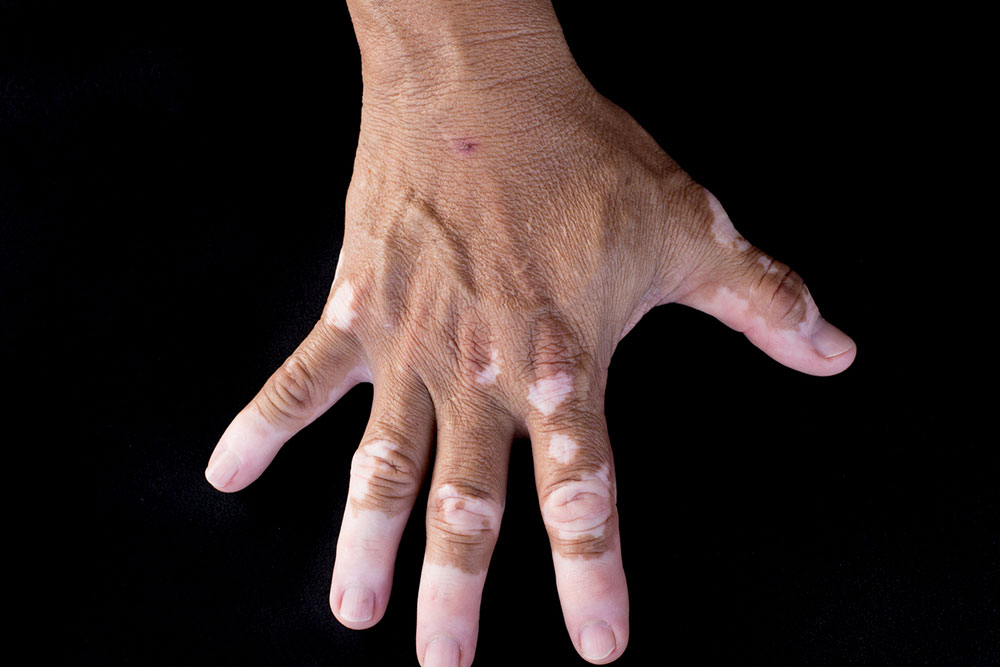3 ways to stop vitiligo from spreading

Vitiligo is an autoimmune condition in which the immune system destroys melanocytes, the skin cells that make pigment. The condition causes depigmentation to specific skin patches and occurs when the skin starts losing its natural color and leaves milky-white patches all over it. While there are no ways to prevent or cure vitiligo, it can be managed by adopting a healthy lifestyle and staying hydrated. Check out a few more ways to curb its spreading.
Have nutrient-dense meals
Since vitiligo is an autoimmune condition, it can be managed by eating nutrient-dense meals. It boosts the immune system, which directly helps manage vitiligo symptoms. A plant-based meal plan that includes the following nutrients is often recommended.
- Antioxidants – Vitamins like C and E are naturally occurring compounds that function like antioxidants. Foods such as berries, green leafy veggies, herbs, dark chocolate, and nuts contain these compounds. These help deal with oxidative stress and avoid cell damage, which invariably alleviates the symptoms of vitiligo.
- Phytochemicals – Compounds such as beta-carotene are phytochemicals found primarily in plants. These include vibrant veggies and fruits like sweet potatoes, spinach, tomatoes, broccoli, and carrots.
- Omega-3 fatty acids – Many nuts, seeds, and oily fish such as salmon, tuna, mackerel, and sardines are rich in omega-3 fatty acids. These nutrients boost the immune function and help with cell repair.
- Vitamin D – Vitiligo can cause a vitamin D deficiency. So, including foods rich in it will help prevent further symptoms. Foods that fall under this category are egg yolks, oily fish, and fortified dairy products like yogurt and milk.
Restrict the intake of fatty, gluten-rich foods
Lowering or avoiding the intake of foods high in fats and gluten can also help prevent vitiligo from affecting more areas of the skin. In addition, restricting inflammation-causing foods will also help.
- High-fat foods – These usually include full-fat butter and cheese, along with fried foods and processed meat products such as bacon, ham, sausages, salami, corned beef, jerky, hot dogs, lunch meat, canned meat, chicken nuggets, and meat-based sauces.
- High-inflammatory foods – Processed snacks, processed meat, fried foods, white bread, and sugary desserts are best avoided.
- Gluten-rich foods – Breads and pasta are common culprits that must be restricted.
Protect skin from sun damage
Sunburn may cause vitiligo to intensely affect more areas of the skin. Those with vitiligo are more susceptible to skin damage due to prolonged sun exposure and, therefore, must protect themselves. One can do so by using waterproof and sweatproof sunscreen with an SPF of at least 25, where a higher SPF will benefit more. Also, one must wear long-sleeved shirts or t-shirts, wide-brimmed hats, and sunglasses when stepping out.
Finally, one must avoid going outdoors, usually between 11 am and 3 pm, when the damage due to the sun is believed to be at its highest.



